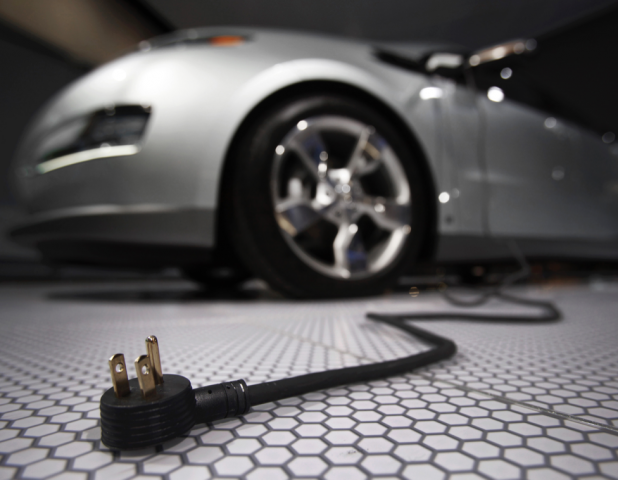Webinar urges collaborations for EV transition
Experts say Pakistan needs sustainable policy framework for EV transformation

Experts at a webinar on Pakistan’s Electric Vehicles (EVs) market potential have called for optimised funding and stakeholders’ collaboration for the EV transition in the country.
They said shifting from existing fuel-based automobiles to EVs was elusive without an optimised funding stream and stakeholders’ collaboration at the government and private sector levels.
The Sustainable Development Policy Institute (SDPI) as part of its webinar series organised an online discussion on “Pakistan’s Electric Vehicle Market: Challenges, Opportunities, and the 2030 Agenda”.
Dr Naveed Arshad, who is an Associate Professor at LUMS, said that battery technology is evolving and requires research and development along with enhanced capital and technical resources, where the latter could be chipped in through academia.
Ahmed Sajeel from Deewan Motors BMW said that the Japanese automobile companies are resisting EVs which is unsustainable in the prevailing milieu as the international automobile industry has decided to shift towards EVs.
Shell’s Midhat Waris said that Shell Global has the largest EV setup having over 1,000 EV charging stations across the world and has piloted its EV rapid chargers in Pakistan. The company’s biggest EV charging station has been launched in China with a capacity of 250 charging points, she added.
Engineer Asim Ayaz of the Engineering Development Board (EDB) said the Ministry of Industries and Production has given licenses to 34 two and three-wheeler manufacturers, whereas, other private partners are also jumping into EV manufacturing. He underscored that the current issue is the lack of financing facilities for customers at the national level as EVs are more expensive due to batteries’ cost than fuel-based vehicles.
Dr Aazir Anwar Khan said that the EVs would have a huge impact on the middle class mostly relying on two or three-wheelers. The country intends to transition from fuel-based vehicles to EVs directly, and since the outlook is positive and transitional the country needs private funding to run these systems, he added.
Abdul Hadi from the auto industry said that his company started converting fuel-based cars over EVs like Suzuki FX, Mehran, and Bolan in 2021, whereas the running cost of the EV is exponentially low.
Dr Khalid Waleed said that linking EVs with national trade and power sector could help resolve the problem, whereas hybrid EVs could be a way forward. The regulatory environment must be accommodating for local assembly and manufacturing infrastructure that needs to be fostered and sustained whereas the latter is the key part, he added.
Published in The Express Tribune, April 23rd, 2024.



















COMMENTS
Comments are moderated and generally will be posted if they are on-topic and not abusive.
For more information, please see our Comments FAQ